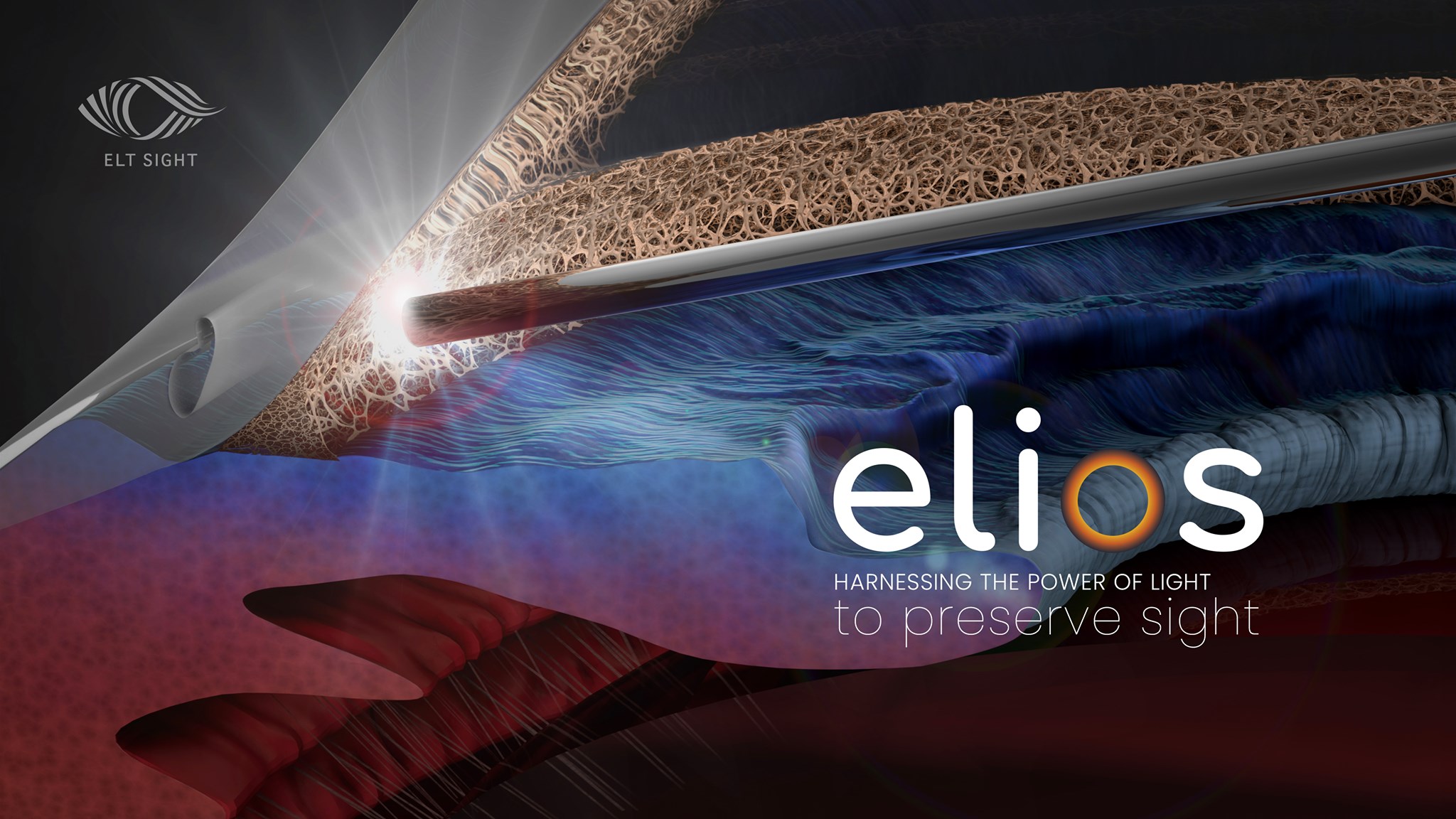
LOS ANGELES, CA, United States, 17-Feb-2022 — /EPR HEALTHCARE NEWS/ — Elios Vision Inc. announced today 8-year follow up results of its novel ELIOS® Excimer Laser Trabeculostomy procedure combined with cataract surgery.
Key study findings:
- 161 eyes of 128 patients with glaucoma or ocular hypertension and cataract received Phaco-ELIOS, and were followed over an 8-year period
- Significant mean IOP reduction from 19.3 mmHg at baseline to 15.4 mmHg after 8 years of follow-up (p=0.0040)
- Significant reduction in medication requirements
- Only 3.7% of patients required secondary surgical glaucoma intervention during the 8-year follow-up period
- No serious intra- or post-operative events were observed
“This large cohort study provides encouraging evidence that the ‘implant free’ Phaco-ELIOS procedure causes minimal trauma, appears to show lasting IOP control with no serious intra- or post-operative complications, and low rate of incisional secondary surgical intervention over a period of at least 8 years,†said Thomas W. Samuelson, MD, founding partner of Minnesota Eye Consultants and an Adjunct Professor of Ophthalmology at the University of Minnesota. Dr Samuelson added that, “it is encouraging for patients that the number of topical medications required to control IOP was reduced significantly up to 4 years and remained below baseline levels across the entire 8-year follow-up period.â€
About the ELIOS procedure:
- The ELIOS procedure creates ten ‘microchannels (210µm)’ in the trabecular meshwork using an excimer laser.
- The microchannels facilitate aqueous outflow into Schlemm’s canal, the eyes natural outflow pathway, reducing IOP2 and preserving the integrity, structure, and function of the trabecular meshwork.
- Combining ELIOS with phacoemulsification is an ‘implant free’ minimally invasive glaucoma procedure with a rapid learning curve for ophthalmic surgeons.
- The ELIOS procedure is approved in Europe for use in adults with glaucoma, with or without cataract, and is undergoing clinical trials in the US under an investigational device exemption (IDE).
- Data on the ELIOS procedure has been published in 12 clinical studies2 with over 850 eyes treated showing an IOP reduction of 20-40% from baseline, a significant reduction of medication for up to 4 years, and up to 81% of patients ‘medication free’ at 1 year,3 and a favorable safety profile.
Over the past decade minimally invasive glaucoma surgeries (MIGS) have transformed the treatment of mild to moderate glaucoma and are an attractive alternative to more invasive incisional procedures such as trabeculectomy and tube shunts. Despite the growing popularity of MIGS, combining cataract and glaucoma surgery is not yet the preferred choice by most surgeons.
This clinical study shows that the ELIOS procedure is attractive to all ophthalmic surgeons for patients with glaucoma that are not controlled by medications or SLT because it reduces IOP to mid-teens for at least 8 years, minimizes postop inflammation, avoids intraocular implants, has a favorable safety profile, with or without cataract surgery.
Why are these findings relevant?
- In 2022 it is estimated that around 29 million people globally will undergo cataract removal and around 20% also have glaucoma or ocular hypertension4.
- These findings demonstrate a sustained reduction of IOP that is longer than any other currently available MIGS procedure.
- Routinely combining cataract and glaucoma treatment is appealing since it can reduce the undesirable burden and side effects of drops and it can avoid patients undergoing two separate surgical procedures which also is more efficient for healthcare systems.
SOURCE: EuropaWire

